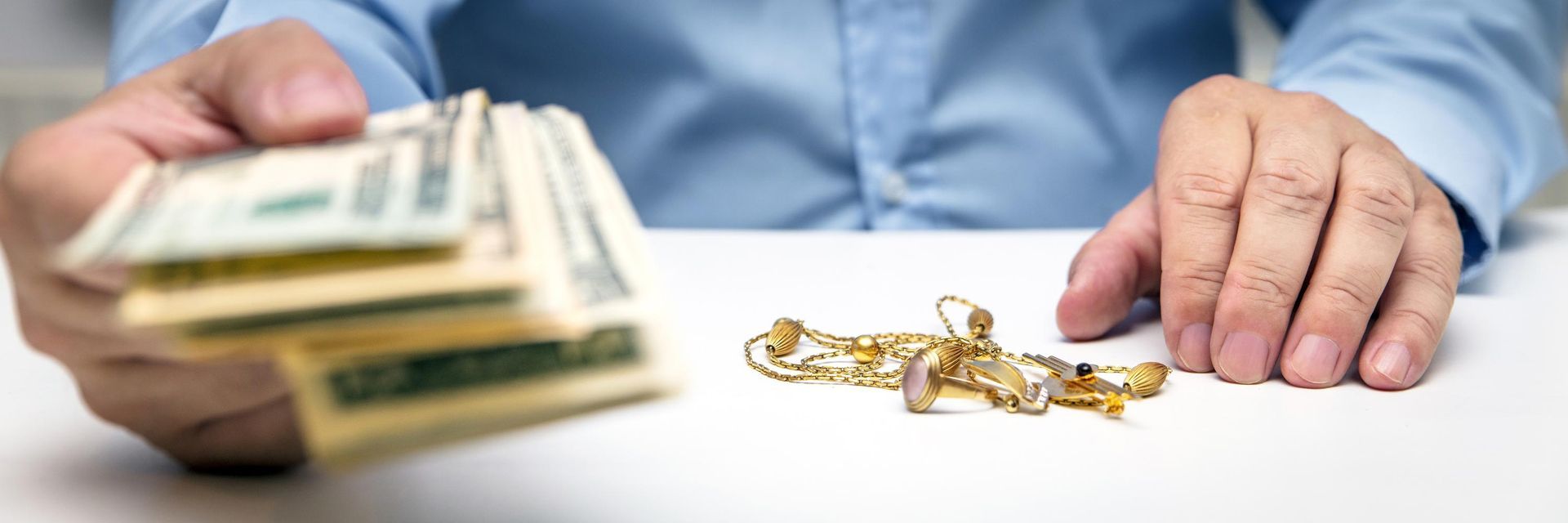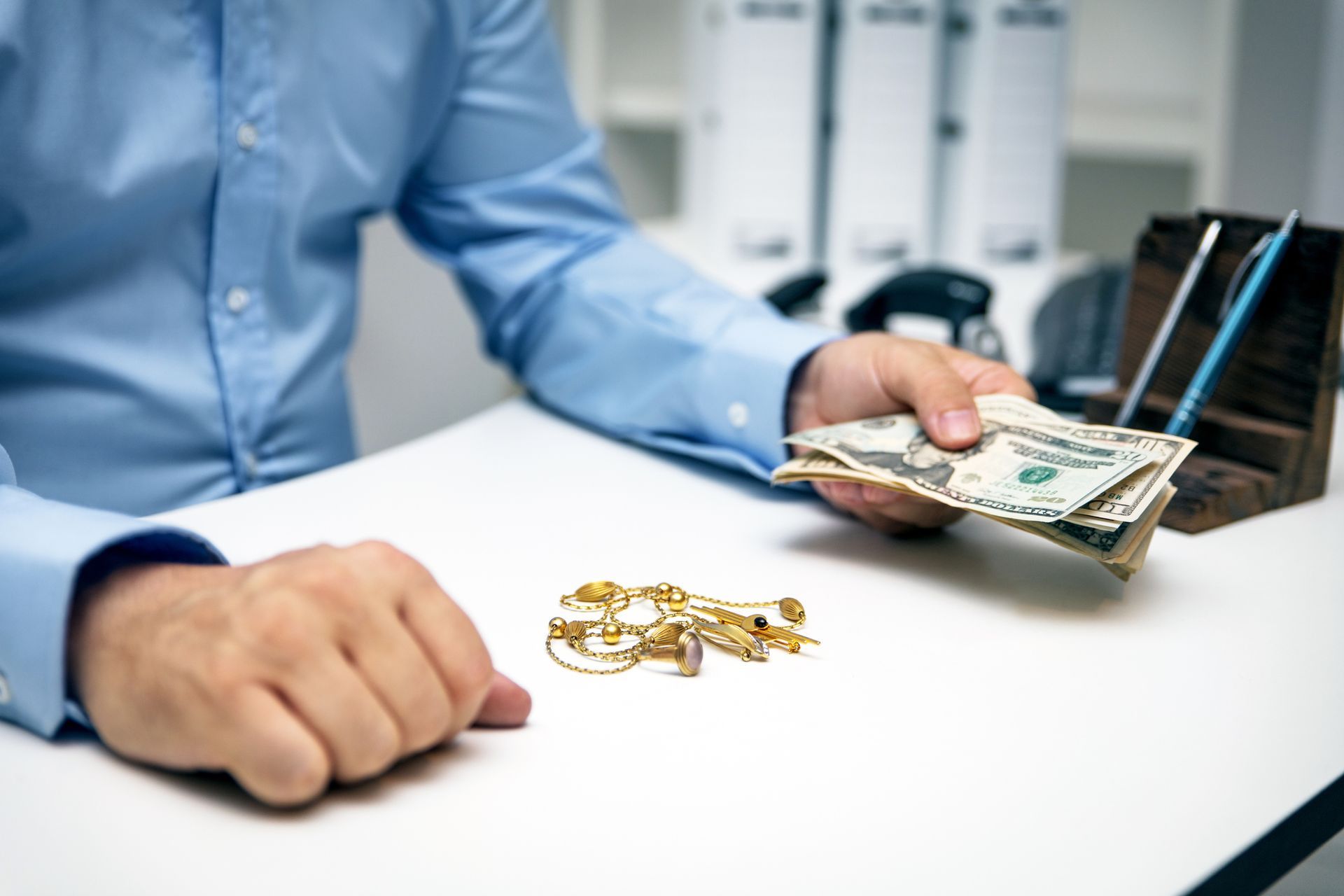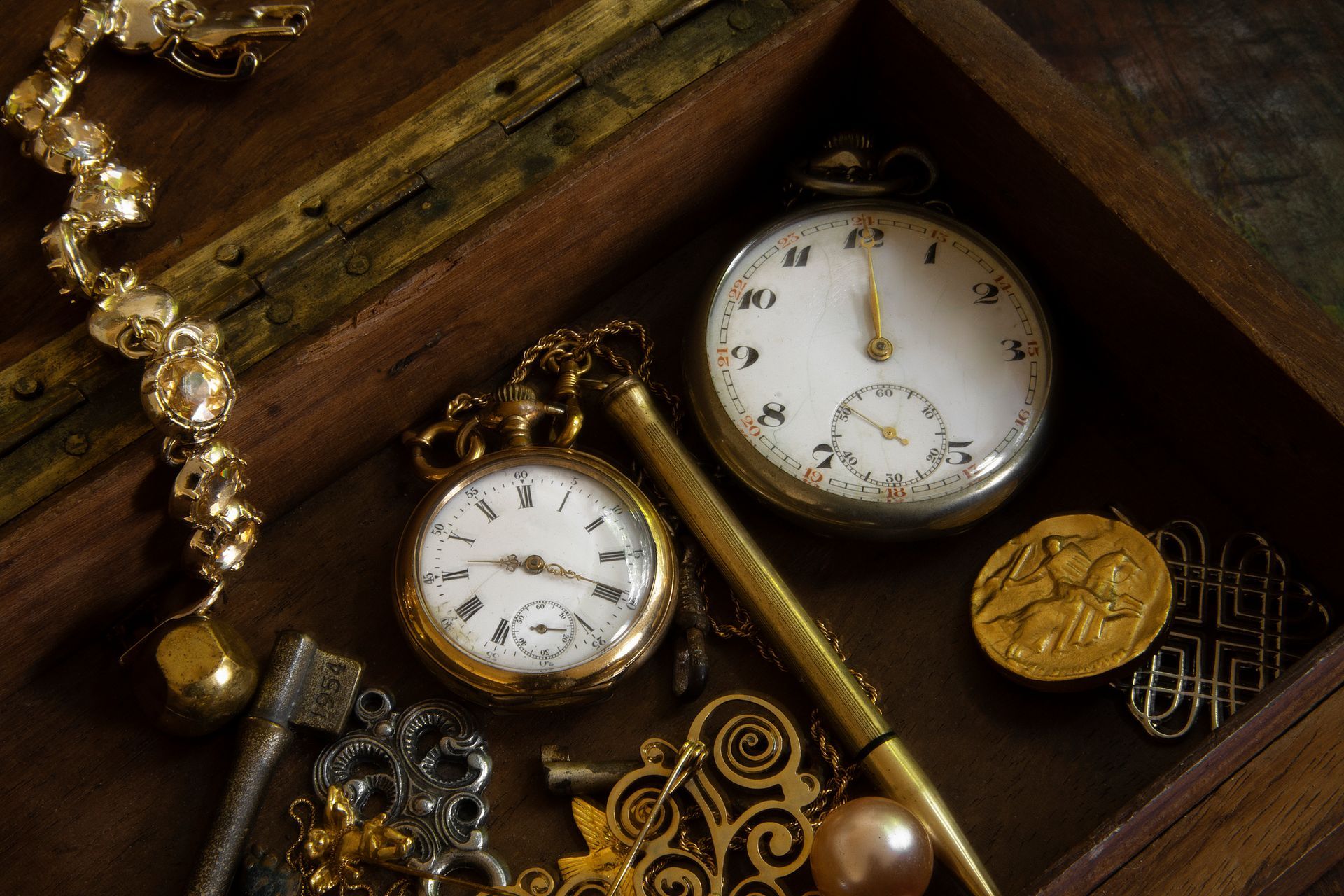4 Things to Bring to a Pawn Shop
- By Admin
- •
- 24 Jul, 2018
- •

If you are in need of some extra money, you may be looking to either sell or pawn off items at a pawn shop. A pawn shop accepts items of value such as jewelry, electronics, guns, and coins. If you are thinking about selling or pawning items, here are four things you should bring with you when you go to the pawn shop.
1. A VALID STATE-ISSUED IDENTIFICATION
In order to sell or pawn any items, you must be over the age of 18 and have a valid state-issued identification. If you do not have a state-issued identification card, such as a driver's license, or if your license has expired, a pawn shop will not be able to purchase or pawn your belongings.
2. THE ITEM YOU WANT TO PAWN OR SELL
Before you pawn or sell an item, you may want to get estimates from different pawn shops to find out what they will pay or give you for the item. You may not wish to carry around an expensive piece of jewelry or a fragile antique. As such, you may take pictures with your phone and hope to get estimates before deciding which shop to sell or pawn your item with.
Unfortunately, most pawn shop owners need to see the item in question before providing you with a binding estimate. When they can view the item in person, they can better determine its condition, authenticity, and worth. So, while traveling with your item may be inconvenient, always bring the item along anytime you are considering pawning or selling something.
Unfortunately, most pawn shop owners need to see the item in question before providing you with a binding estimate. When they can view the item in person, they can better determine its condition, authenticity, and worth. So, while traveling with your item may be inconvenient, always bring the item along anytime you are considering pawning or selling something.
3. ANY APPRAISALS OR CERTIFICATES OF AUTHENTICITY
When you are looking to sell or pawn an item, always bring along any documents that can increase the value of the item and explain exactly what the item is. These documents may include appraisals or certificates of authenticity.
Pawn shop owners and employees cannot simply take your word that the item is authentic. For example, if you have an autographed baseball, they have no way of verifying the signature without a certificate of authenticity.
Likewise, when looking at an engagement ring, an employee uses the knowledge they have to estimate what you are bringing them, but they are not jewelers. An appraisal tells them exactly the size, cut, and clarity of the diamond, all of which can affect pricing.
Pawn shop owners and employees cannot simply take your word that the item is authentic. For example, if you have an autographed baseball, they have no way of verifying the signature without a certificate of authenticity.
Likewise, when looking at an engagement ring, an employee uses the knowledge they have to estimate what you are bringing them, but they are not jewelers. An appraisal tells them exactly the size, cut, and clarity of the diamond, all of which can affect pricing.
4. PROOF OF OWNERSHIP
Lastly, when you are thinking about selling or pawning an item, be prepared to answer questions about the ownership of the item and possibly show proof of ownership.
The pawn shop is responsible for rejecting stolen merchandise. In order to prevent thieves from selling to them, pawnbrokers often ask the seller if they own it and how they acquired the item. You will also have to sign an affidavit under penalty of perjury that you are the rightful owner of the item.
In areas where crime is common, an affidavit might not be enough to protect the pawn shop. The pawnbroker may also ask you to provide some sort of proof of ownership, such as the receipt from when you purchased the item or warranty information. You might not need to provide this information, but you should bring it just in case.
Always be prepared with the correct documents and items when you visit pawn shops, and you might be able to receive the funds you need right when you need them.
When you are looking to sell or pawn off items you have in exchange for money, bring your items to 2; J's Pawn & Gun. We offer great prices for your items, helping you to maximize the amount of money you get.
The pawn shop is responsible for rejecting stolen merchandise. In order to prevent thieves from selling to them, pawnbrokers often ask the seller if they own it and how they acquired the item. You will also have to sign an affidavit under penalty of perjury that you are the rightful owner of the item.
In areas where crime is common, an affidavit might not be enough to protect the pawn shop. The pawnbroker may also ask you to provide some sort of proof of ownership, such as the receipt from when you purchased the item or warranty information. You might not need to provide this information, but you should bring it just in case.
Always be prepared with the correct documents and items when you visit pawn shops, and you might be able to receive the funds you need right when you need them.
When you are looking to sell or pawn off items you have in exchange for money, bring your items to 2; J's Pawn & Gun. We offer great prices for your items, helping you to maximize the amount of money you get.
If you're a gun collector or enthusiast, then you know that finding rare and collectible guns can be daunting. Read about how to find them at pawn shops.
Are you in need of some quick cash and considering selling your watch to a pawn shop? Read this blog for tips for a successful transaction.
Have you ever considered selling your jewelry to a pawnshop? Discover three things you can do to your jewelry before you sell it to a pawn shop.
Pawnshops are a great place to snag an excellent bargain. What guarantees should pawnshop customers expect from reputable pawnshops? Read on to learn more.
Often, customers can negotiate with pawn shop owners to get a lower price. Learn some ways to negotiate at a pawn shop and save money.
Do you wonder what things you can sell at a pawn shop? While pawn shops will accept most items, they don’t accept everything. Learn about what you can pawn.









